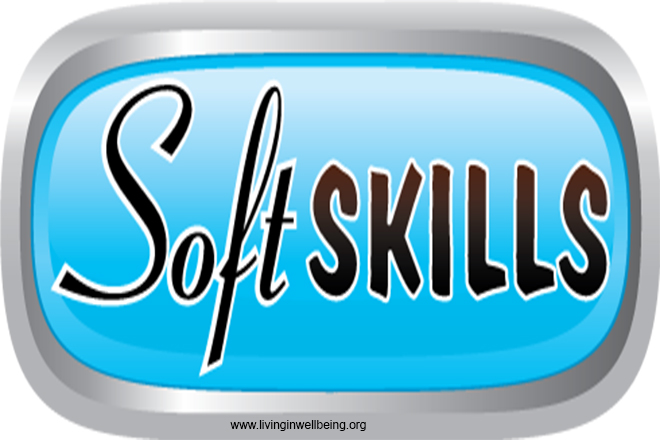
Leadership deals with the world of emotions and feelings. It is more of an art than a science. Like artists, leaders have the ability to share their vision of the world. Leaders influence our perceptions and help us look at situations in new ways. These skills - and the leadership principles that guide their development - are critical to the success of an organization or team.
Of course, there are some people who remain unconvinced of the value of these "soft skills." They're typically managers with minimal leadership qualities, who prefer to focus on being bottomline driven, strategists, marketing aces, technical experts, "snoopervisors," and so on.
These managers often talk about the importance of personal effectiveness and development. They pledge undying allegiance to values, mission, and vision. They go on about people issues, like communication, teamwork, respect, and service. But they really think it's just a lot of fluff.
Well, maybe they should think again. Now there is hard evidence that those "soft" leadership principles are the major factor in what makes a high-performance team or organization. The exciting and rapidly expanding research on emotional intelligence shows that a leader's personal characteristics and leadership competencies have a direct bearing on his or her personal performance - as well as on that of their team and organization.
For example, studies show that even a leader's mood is highly contagious. Depending on whether he or she is upbeat and supportive, or cranky and disapproving, the team will either be charged with high achievement or poisoned with deadly toxins.
Improving Our Emotional Intelligence
Cary Cherniss, at Rutger's University, has found "there now is a considerable body of research suggesting that a person's ability to perceive, identify, and manage emotion provides the basis for the kinds of social and emotional competencies that are important for success in almost any job. Furthermore, as the pace of change increases and the world of work makes ever greater demands on a person's cognitive, emotional, and physical resources, this particular set of abilities will become increasingly important."
There's not a lot we can do about the processing power between our ears. For the most part, we're stuck with whatever intelligence quotient (IQ) we've got. The good news for many of us, is that our IQ is dramatically less important to success and happiness than our emotional intelligence (EQ). What's even better is that EQ, unlike IQ, can be improved. It's not easy (nothing worth doing ever is), but it can be done.
As University of Toronto psychology professors Steven Stein and Howard Book (what better name for an author?) write in their book, The EQ Edge: Emotional Intelligence and Your Future, "We know that emotional intelligence can be enhanced because we've seen it happen over and over again as we've worked with corporate CEOs and other executives, school teachers, military personnel, counselors and consultants, mental health professionals, and husbands and wives. Adopting proven methods found in cognitive and behavioral therapy, as well as from psychodynamic theory, we have trained many of these individuals to increase their emotional intelligence in easily understandable and proven ways."
Improving our emotional intelligence starts with a clear picture of our ideal self. This is at the hub of our Leadership Wheel: Where am I going (or what is the picture of my preferred future)? The next step is a "gap analysis," or assessment of my current strengths and weaknesses, followed by a plan for bridging those gaps (building on my strengths and strengthening my weaknesses). Then the real improvement work begins - experimenting with new behaviors, reframing my thinking, developing skills, and mastering feelings. This can often be reinforced by forming new relationships, or by changing the dynamic of existing ones. These steps are generally difficult to sustain on our own. That's why personal coaches, counselors, and consultants have become so popular. They help us step back from the movie of our life, to review and reset our thinking and actions.












